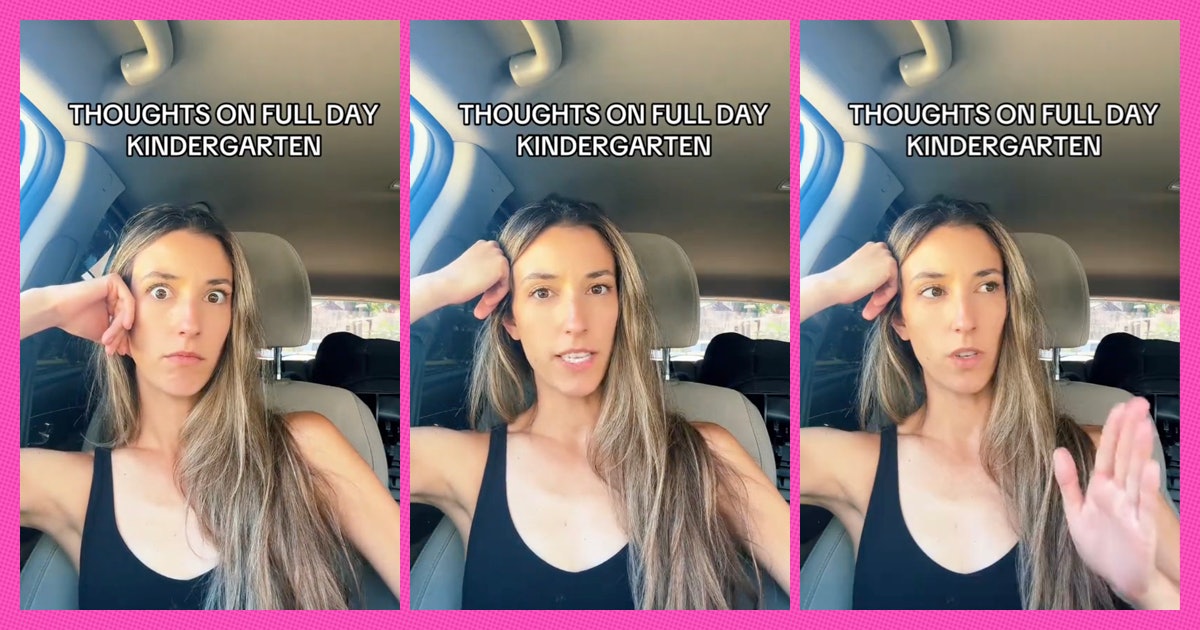For some children, the transition to kindergarten is as easy as “one, two, three.”
A day trip to preschool, daycare, or even grandma can cause some kids to be completely ready to spread their wings and spend most of their time away from their parents.
But what about the little ones who are less eager to fly?
A mother named Lindsay Witt asked on TikTok: What happened to half-day kindergarten?
She thinks the shorter option would provide a softer transition for younger children, but it seems less common these days.
“Who thinks it’s a good idea for kindergartners to go to school all day?” Lindsay asked.
“Isn’t it shocking to everyone else that we are going to be sending five- and six-year-olds to school full-time for six hours a day for the first time?”
“Why is it that my daughter, who is only five years old when she started kindergarten, has been in school for as long as a 12-year-old?” she continued.
“I think the transition would be much better for parents, teachers and, most importantly, kids if we started with half a day or a shortened day. Six hours seems crazy.
Many commenters echoed Lindsay’s concerns.
“Kindergarten teacher here… I agree! School started this week and the kids are exhausted! Comment user 308308.
“I went to kindergarten in Nevada from 8 to 12. Now my son and I can’t find anything like that and it drives me crazy that this is ‘normal,'” Keely Gabel said.
However, many commenters disagree. While some shared positive experiences of their children in full-day kindergarten, many more noted that kindergarten is necessary child care for working parents.
“My daughter went to daycare for 10 months because people had to work. Then kindergarten plus after-school care. I promise, no problem.
“Because most parents can’t work 4.5-5 hours and then go out to pick up their kids. They also can’t afford daily aftercare,” mamarogers1719 added.
Over the past 40 years, full-day kindergarten has become a mainstream option, growing from 28% in 1977 to 77% in 2013, according to Child Trends.
And there are many benefits: The National Education Association found that full-day programs improve children’s reading and math scores and improve social and emotional skills.
Meanwhile, other research has found that the benefits of full-day kindergarten may depend on factors such as class size, and that the initial benefits may “disappear” and the playing field evens out by third grade.
However, choosing between a full day or a half day may largely depend on what options are available to you. Although full-day kindergarten is popular, public options may not be as common as you think.
Only 18 states even require children Attend Kindergarten, organized according to the policies of the state boards of education. While 45 states require school districts supply In some form of kindergarten, only 17 require districts to offer full-day programs.
So, what’s the answer? Full day or half day?
Well, the choice is up to you and maybe your school district.




